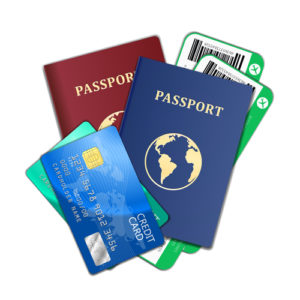
By Alyssa Furtado, RateHub.ca
Special to the Financial Independence Hub
When it comes to choosing a credit card, it’s easy to feel overwhelmed by the number of different options available. Although it might seem simplest to choose one with your current bank or go with whatever your friends use, you could be leaving rewards such as cash back on the table by taking a one-size-fits-all approach.
Here are four common profiles and the best type of credit card for each.
Frequent flyer
Making the most of vacation days can be expensive, especially if you like to travel. However, you can often help offset these costs using a travel rewards credit card. There are some great travel rewards programs in Canada where you can start collecting points. But because each program is different, make sure you know how they work.
The BMO Rewards Program is a good example, because for every dollar you spend you can earn up to two points. You can then redeem 100 points for $1 back on a wide range of categories including flights, hotels, car rentals and even merchandise or gift cards. Your everyday spending can really start to add up – for example, if you spend $1,500 a month using the BMO World Elite MasterCard, after a year you would have enough points to redeem $360 in value.
Travel cards often also offer good value because most come with a range of insurance benefits such as lost or delayed baggage, trip delay or cancellation and medical coverage. You can then relax on your travels, knowing that if something does go wrong, you’ll be covered.
Big spender
If you like to use your credit card for most of your everyday purchases and bills, you should look to maximize your rewards with a premium rewards credit card. Many of these cards have an annual fee, but if you’re a big spender, the net reward from premium cards are often much higher because the earning potential is usually much higher than with no fee credit cards.
The best rewards cards typically fall into two categories – travel and cash back. If you’ve decided that you don’t fit into the frequent flyer category above, consider instead a cash back credit card. With this type of card, the amount you can redeem typically starts at around 1%, but can get as high as 4% or even more with special promotions.
While some cards offer a standard rate, most vary the amount you earn by spending categories, such as gas, groceries and restaurants. So, when choosing a specific card, make sure that the one you choose is most closely aligned to your spending habits to make sure you’re getting the maximum return.
Low spender
If you don’t tend to use your credit card very often, the opposite is true to the Big Spender category.
As your spending is limited, you may not be earning enough rewards to compensate for an annual charge and consequently this could leave you with a negative net return. In this scenario, it makes more sense to opt for a no annual fee credit card which could help you avoid a fee of typically $99-$120 a year.
Although you can get rewards with a no fee card, your earning potential in terms of rewards is normally lower than what you would find with a premium card. So, as long as you can afford to pay your monthly statements, if you decide to start paying for more of your everyday purchases with a credit card you should reconsider paying an annual charge to be eligible for higher rewards.
Credit builder
If you have poor credit, oddly enough, using a credit card can be an effective way to build your credit score. You’ll find it easiest to get approved for a secured credit card.
This type of card is quite literally “secured” against a deposit, which is typically one to two times the credit limit. But, when you decide to close your account, you will get your security deposit back if you keep your account in good standing. Also, beware of a setup fee the bank may charge.
While it’s great to have this card available to you, secured cards are really only a temporary measure while you prove to the bank that you’re a responsible customer. Once you have achieved a good credit score – generally indicated by a score of 725 or higher – you can close your secured card and reassess which credit card works best for you.
Whatever your spending profile, make sure your credit card is working for you.
 Alyssa Furtado is a passionate entrepreneur, financial expert, digital marketer and educator and founder of RateHub.ca, a website that compares Canadian mortgage rates, credit card deals, deposit rates and insurance. Its goal is to empower Canadians to search smarter and save money.
Alyssa Furtado is a passionate entrepreneur, financial expert, digital marketer and educator and founder of RateHub.ca, a website that compares Canadian mortgage rates, credit card deals, deposit rates and insurance. Its goal is to empower Canadians to search smarter and save money.

